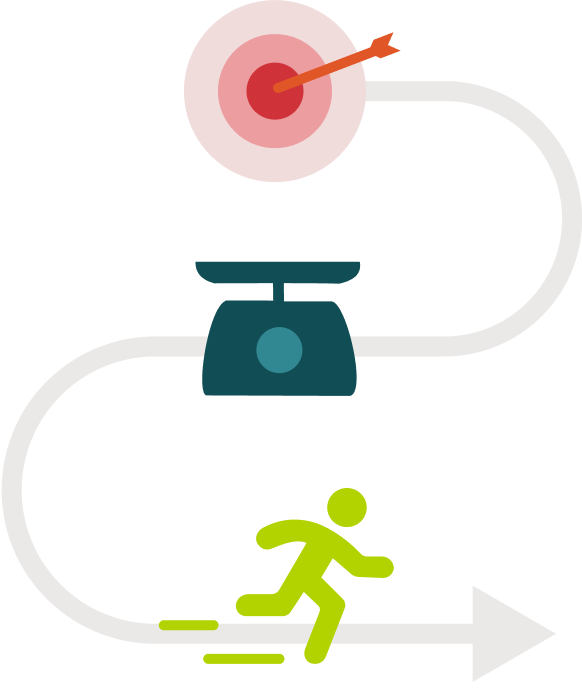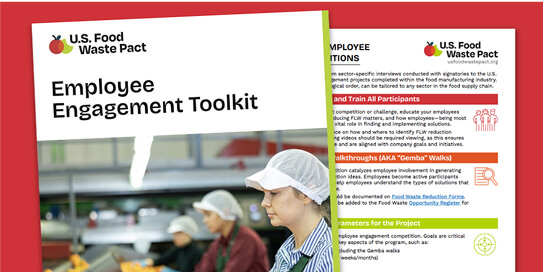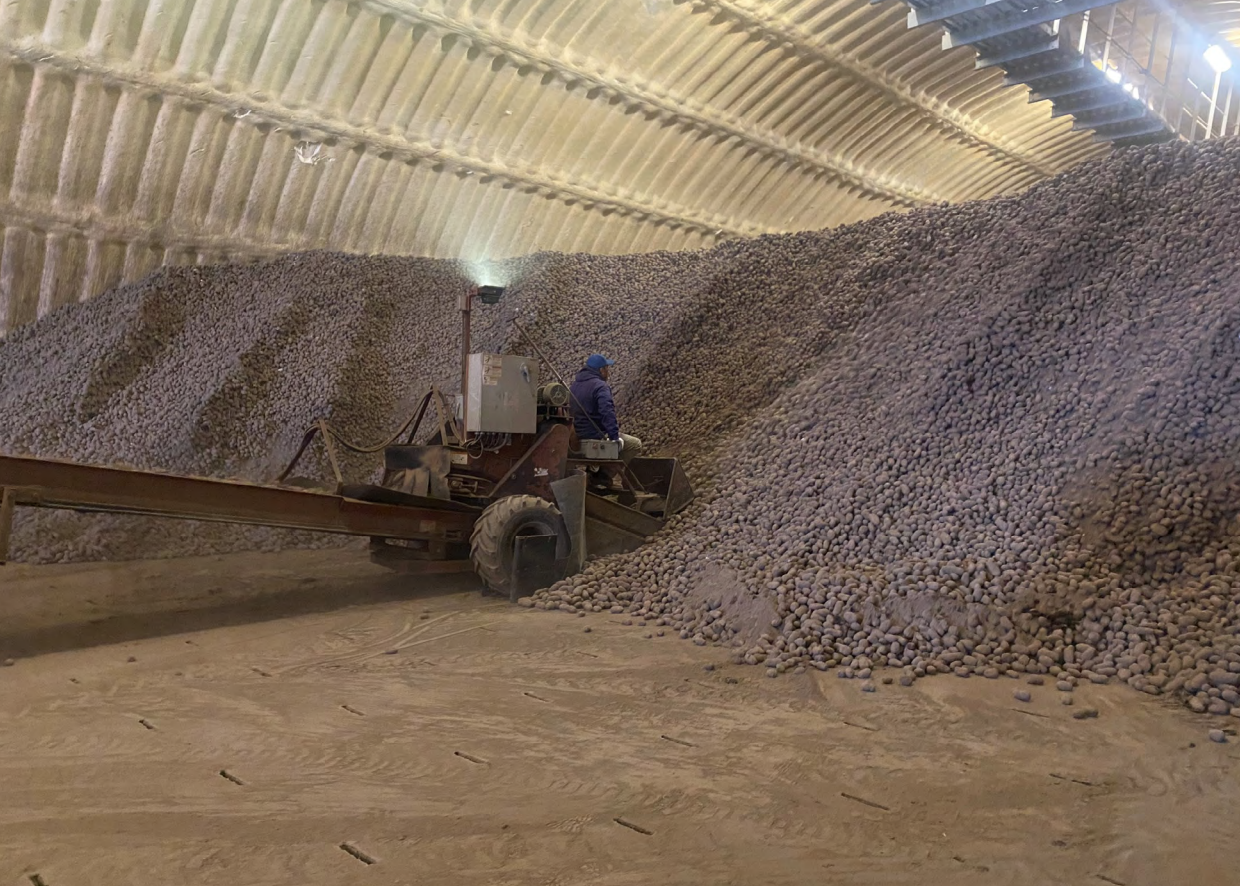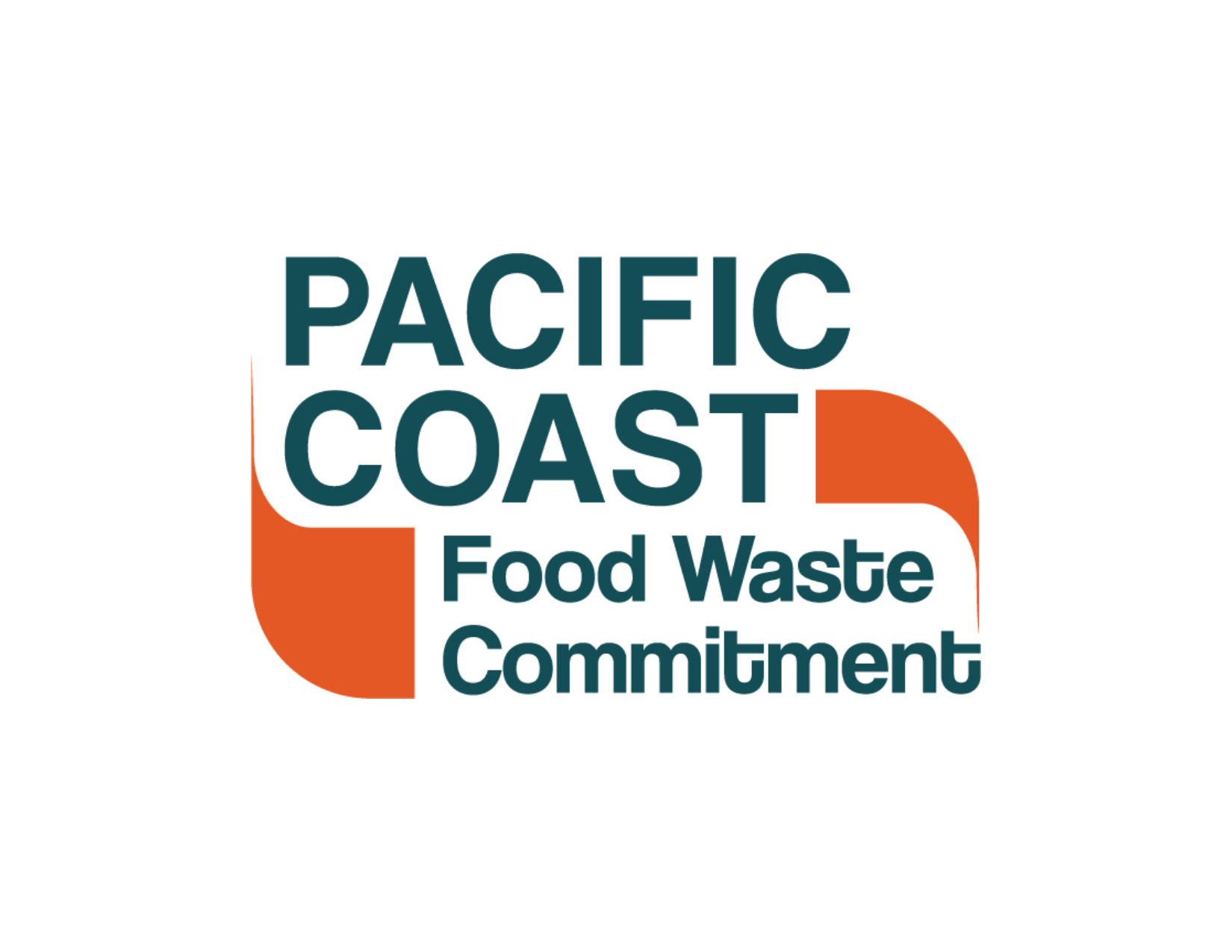About Us
Led by nonprofit organizations ReFED and World Wildlife Fund (WWF), the U.S. Food Waste Pact aims to bring waste-generating food businesses together to reduce their food waste through the “Target, Measure, Act” framework. Our signatories span the supply chain, and they participate in our three programmatic pillars: data collection and analysis, precompetitive convenings, and pilot projects.


Our Approach
What is Target, Measure, Act?
Target, Measure, Act is a simple but sequential framework for reducing food loss and waste. Endorsed by Champions 12.3, it has been used in voluntary agreements in multiple countries, starting first with the UK's voluntary agreements in 2015. For food businesses, this framework provides a path to:
-
Target | Set goals to reduce food waste.
-
Measure | Use data to mark progress against those goals.
-
Act | Implement data-informed action to meet those goals.

The U.S. Food Waste Pact believes in this framework as a key to successful food waste reduction across the supply chain. When all three levers are used to their fullest potential, real change happens. Signatories of the Pact do not adhere to a consistent target, making the Pact’s usage of the framework unique to other voluntary agreements. This allows for each signatory to target waste in ways that work best for their business, collect data and measure against their own baselines, and test and scale solutions that address their specific needs.
Use Cases
"Target, Measure, Act" in action.

Employee Engagement
The Pact’s employee engagement work is an example of a food waste reduction solution that has been tested and scaled by multiple businesses in multiple sectors.

Whole Chain
The Pact’s whole chain work identifies waste hotspots in various stages of a commodity’s supply chain. This work serves as the first-of-its-kind in the United States.
Where We Came From
Launched at COP28 in December 2023, the U.S. Food Waste Pact builds upon the legacy of similar international and regional voluntary agreements around the world. Inspired by the success of the Pacific Coast Food Waste Commitment—a regional effort of the Pacific Coast Collaborative that has made significant progress in reducing food waste—the U.S. Food Waste Pact builds upon those efforts and brings the work to a national scale.

